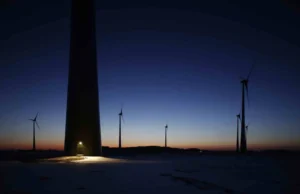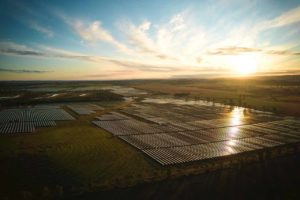After 30 years of inaction, the focus on climate risk is accelerating as the physical impact of climate change worsens and the transition risks to a low-carbon world intensify.
Despite effusive official rhetoric, nothing has been done to seriously address climate change, notwithstanding increasingly urgent warnings.
To prevent temperatures rising above the upper 20C limit of the 2015 Paris Climate Agreement, it is no longer possible to follow a gradual, incrementalist glide path.
We have left it too late; emergency action, akin to wartime regulation, is inevitable, which further increases the transition risk. Market-based measures alone are insufficient.
Despite years of denial in the top echelons of corporate Australia, legal opinion has confirmed that: “company directors who fail to properly consider and disclose foreseeable climate-related risks to their business could be held personally liable for breaching their statutory duty of care and diligence under the Corporations Act.”
Regulators are finally waking up that climate risk has the potential to create a crisis far greater than the 2008 Global Financial Crisis, emphasising that: “climate risks are foreseeable, material and actionable now.”
They have yet to honestly face up to the existential implications.
Curious, then, that the Minerals Council of Australia (MCA) should recently publish an astonishingly misleading report on Market Demand for Australian Export Thermal Coal, 2017-2030.
In 52 pages, from consultant Commodity Insights, there is not a single mention of the greatest threat to thermal coal exports, namely climate change risk.
Government estimates of thermal coal expansion are used to produce a single-line estimate of a massive 60 per cent increase in thermal coal import demand by 2030 for countries across the Asian region.
A strongly supportive media release from MCA Coal Director Greg Evans, claims that “Australian coal is ideally placed to meet this growing demand”, albeit the report is silent on Australia’s possible share of this growth.
The report optimistically includes new power station builds, but fails to properly net out older power station closures.
It contradicts authoritative studies such as the International Energy Agency (IEA) 2017 World Energy Outlook, which suggests that to meet Paris climate change commitments, global thermal coal trade, far from expanding, will reduce by 28% by 2025 and 59% by 2040.
Even the IEA central New Policies scenario shows no growth.
The MCA is a company limited by guarantee, incorporated and domiciled in Australia, hence subject to the Corporations Act.
To promulgate such material without qualification is misleading and deceptive. MCA’s directors must consider how climate change impacts MCA’s business, and the business of its members.
This reports demonstrates an ignorance of climate risk and failure by the directors’ to discharge their duty of care and diligence in overseeing the company’s operations.
The report is a blatant attempt to influence the current toxic political debate on climate and energy policy in favour of coal expansion.
The MCA has form in this regard, for three decades having been a serial offender preventing the introduction of serious climate policy in Australia.
It has reached the point that the two major MCA members, BHP and Rio Tinto, under pressure from their own shareholders, finally reconsidered their MCA involvement given the stark contrast between MCA climate policy and their own.
Following reframing of MCA policy, which includes the duty to consider climate risk, both BHP and Rio retained their involvement.
Yet this report appears to breach the updated policy. Thus, MCA’s directors are increasingly exposed to personal liability for failing to govern the company in a manner that adequately considers climate risk.
Some MCA directors have short memories.
In November 2015, the New York State Attorney General, via the US Securities and Exchange Commission, secured undertakings from the world’s largest coal company, Peabody Energy, for violating state laws prohibiting false and misleading conduct in regard to Peabody’s public statements on risks posed by climate change.
In part by misrepresenting the findings and projections of the IEA.
Peabody Energy Australia, a subsidiary of Peabody Energy, is a member of the MCA, with a director on the MCA Board.
The implications of South Asia following a Chinese pattern of coal expansion, which is what this report implies, are horrendous in terms of climate impact; the result would be: “a world incompatible with any organised global society.”
Far more people would die from the use of coal than will ever be pulled out of poverty. The market for seaborne coal, far from growing, would disappear. The cost to Australia, in terms of stranded assets, would be massive.
In the national interest, regulators must now stop the stream of MCA disinformation once and for all.
—————-
Ian Dunlop was formerly an international oil, gas and coal industry executive, chair of the Australian Coal Association and CEO of the Australian Institute of Company Directors. He is a Fellow of the Centre for Policy Development and Director of Australia21.











